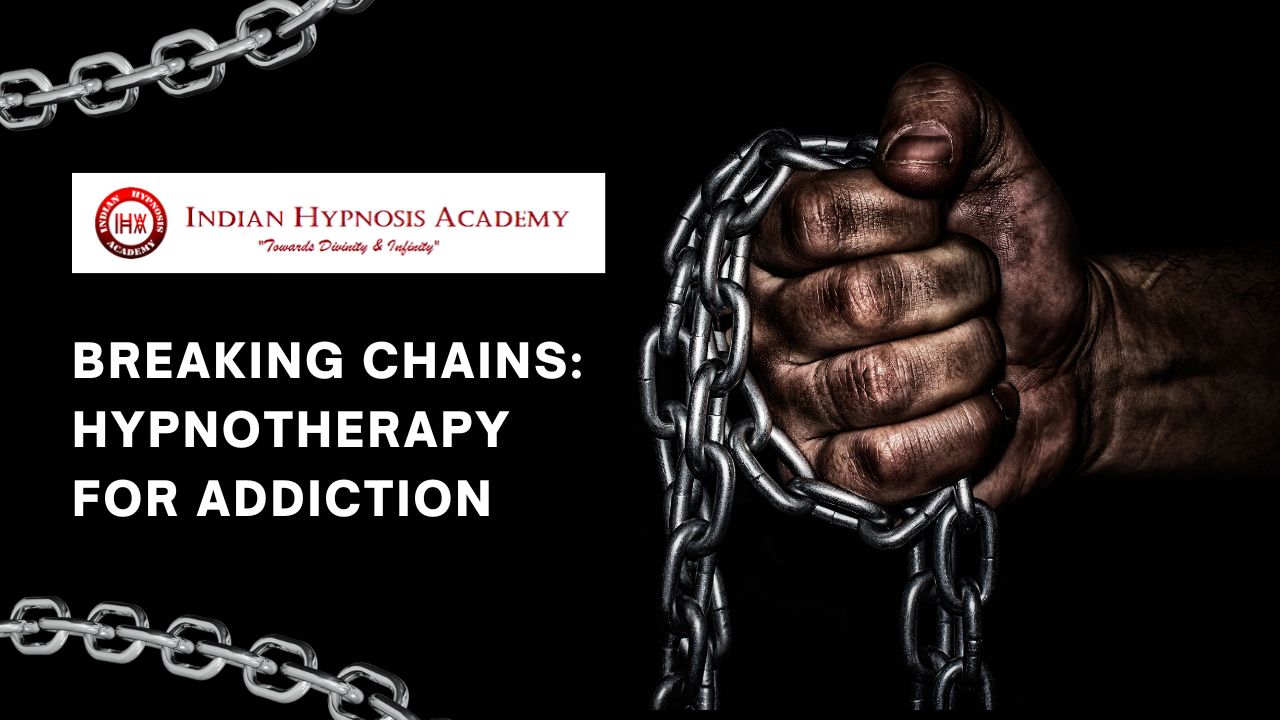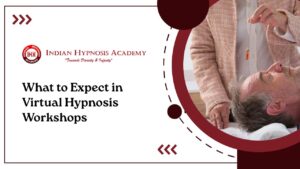Introduction to Hypnotherapy
Do you feel trapped in the relentless cycle of addiction? Are you desperately seeking a way to break free from its grip? If so, then hypnotherapy might just be the key to unlocking your path towards recovery and reclaiming control over your life. In this blog post, we will explore how hypnotherapy can help break the chains of addiction, sharing case studies and success stories along the way. But first, let’s delve into what exactly hypnotherapy is and how it works its magic in transforming lives. So sit back, relax, and prepare to embark on a journey of self-discovery and liberation as we unravel the power of hypnotherapy for addiction.
Understanding Addiction
Addiction is a complex and multi-faceted issue that affects millions of people worldwide. It goes beyond simply having a strong desire or craving for something; it involves a compulsive need to engage in certain behaviors or consume substances, despite the negative consequences.
One common misconception about addiction is that it is solely a result of weak willpower or moral failings. In reality, addiction is influenced by various factors such as genetic predisposition, environmental triggers, and underlying mental health conditions.
The brain plays a crucial role in addiction. When someone becomes addicted to drugs or engages in addictive behaviors like gambling or shopping excessively, the brain’s reward system is hijacked. This leads to an imbalance in neurotransmitters such as dopamine, which is responsible for feelings of pleasure and reward.
Over time, repeated exposure to addictive substances or behaviors can lead to changes in the brain’s structure and function. This not only reinforces the addictive cycle but also makes it increasingly difficult for individuals to break free from their addictions without professional help.
It’s important to recognize that addiction can manifest in different forms – substance abuse (alcoholism, drug addiction) and behavioral addictions (gambling disorder, internet gaming disorder). Regardless of the specific form it takes, addiction has devastating effects on individuals’ physical health, relationships, finances, and overall well-being.
To address addiction effectively requires understanding its underlying causes and implementing comprehensive treatment approaches tailored to each individual’s needs. While traditional methods like counseling and support groups are valuable components of recovery programs,
How Hypnotherapy Can Help Break the Cycle of Addiction
Hypnotherapy has emerged as a powerful tool in breaking the cycle of addiction. By tapping into the subconscious mind, hypnotherapy helps individuals address the underlying issues that contribute to their addictive behaviors. Unlike traditional therapy, which primarily focuses on conscious thoughts and emotions, hypnotherapy delves deeper, targeting ingrained patterns and beliefs.
During a hypnotherapy session, a trained therapist guides the individual into a relaxed state where they are more receptive to suggestion. Through this process, negative thought patterns associated with addiction can be replaced with positive affirmations and healthier coping mechanisms.
By addressing the root causes of addiction at a subconscious level, hypnotherapy can help break destructive habits and cravings. It enables individuals to regain control over their actions and make lasting behavioral changes.
Moreover, hypnotherapy empowers individuals to develop new perspectives towards themselves and their relationship with substances or behaviors. This shift in mindset fosters self-awareness and encourages personal growth beyond addiction.
It is important to note that hypnotherapy for addiction is not a standalone treatment but works best when integrated with other evidence-based therapies such as cognitive-behavioral therapy (CBT) or support groups. These complementary approaches provide additional tools for managing triggers and maintaining sobriety.
Continued support after completing hypnotherapy sessions is crucial for long-term success. Mindfulness techniques like meditation or journaling can help individuals stay grounded during challenging moments. Building strong social networks and seeking ongoing professional guidance also play pivotal roles in sustaining recovery efforts.
Case Studies and Success Stories
Let’s dive into some real-life examples of how hypnotherapy has helped individuals overcome addiction. These case studies and success stories highlight the transformative power of this therapeutic approach.
In one case study, a 35-year-old woman named Sarah had been struggling with alcohol addiction for over a decade. Traditional treatment methods hadn’t provided lasting results, so she decided to try hypnotherapy as a last resort. Through guided relaxation techniques, visualization exercises, and positive suggestion therapy, Sarah was able to address the root causes of her addiction and develop healthier coping mechanisms. After several sessions, she reported a significant reduction in cravings and an increased sense of self-control.
Another success story involves Mark, a 45-year-old man who had been addicted to smoking cigarettes for more than 20 years. Despite multiple attempts to quit using conventional methods such as patches or medications, he always found himself relapsing. With the help of hypnotherapy sessions focused on reprogramming his subconscious mind and changing his beliefs about smoking, Mark was finally able to break free from his nicotine dependency. He now proudly proclaims that he is smoke-free after years of struggling.
These are just two examples among many others where individuals have experienced remarkable breakthroughs through hypnotherapy for addiction. The personalized nature of this therapy allows it to address each person’s unique challenges and triggers.
Remember that every individual’s journey is different when it comes to overcoming addiction through hypnotherapy; there is no one-size-fits-all approach. However, these case studies demonstrate the potential benefits that can be achieved when combining this powerful technique with other holistic approaches.
Stay tuned as we explore further aspects of using hypnotherapy in breaking chains of addiction!
The Process of Hypnotherapy for Addiction
The process of hypnotherapy for addiction is a unique and powerful approach that aims to break the chains of addictive behaviors. Through deep relaxation and focused attention, individuals are guided into a state of heightened awareness where the subconscious mind becomes more receptive to positive suggestions and behavioral changes.
During a hypnotherapy session, the therapist will work closely with the client to identify underlying issues contributing to their addiction. This may involve exploring past traumas, negative thought patterns, or emotional triggers. By addressing these root causes, hypnotherapy can help individuals gain insight into their addictive behaviors and develop healthier coping mechanisms.
Once these underlying issues have been identified, the therapist will guide the client through various techniques such as visualization, positive affirmations, and regression therapy. These methods aim to reprogram the subconscious mind by replacing negative beliefs with positive ones.
It’s important to note that hypnotherapy is not a one-size-fits-all approach. Each session is tailored specifically to meet the individual’s needs and goals. The number of sessions required may vary depending on factors such as the severity of addiction and individual responsiveness.
Throughout this process, clients are actively involved in their own healing journey. They play an integral role in setting goals, making commitments to change, and participating in follow-up exercises between sessions.
Hypnotherapy for addiction is often used alongside other treatment methods such as counseling or support groups. By combining different approaches, individuals can benefit from a comprehensive approach that addresses both psychological and physiological aspects of addiction.
After completing a course of hypnotherapy for addiction, it’s crucial for individuals to continue practicing mindfulness techniques on their own. This helps reinforce new patterns of thinking and behavior while promoting self-awareness and emotional well-being.
Combining Hypnotherapy with Other Treatment Methods
When it comes to addiction recovery, there is no one-size-fits-all approach. That’s why many therapists and counselors are turning to a holistic approach that combines hypnotherapy with other treatment methods. By integrating various techniques, individuals struggling with addiction can receive comprehensive support for their journey towards recovery.
One common method of combining hypnotherapy with other treatments is through cognitive-behavioral therapy (CBT). CBT helps individuals identify and change negative thought patterns and behaviors that contribute to their addiction. When used in conjunction with hypnosis, clients can delve deeper into the subconscious mind, uncovering underlying issues that may be driving their addictive behavior.
Another effective combination is incorporating mindfulness techniques alongside hypnotherapy. Mindfulness encourages individuals to focus on the present moment and become aware of their thoughts and feelings without judgment. This practice complements the deep relaxation experienced during hypnosis sessions, helping individuals develop greater self-awareness and emotional regulation skills.
In addition to CBT and mindfulness practices, some therapists also utilize motivational interviewing techniques when working with clients undergoing hypnotherapy for addiction. Motivational interviewing aims to enhance an individual’s motivation for change by exploring ambivalence about quitting substance abuse. By addressing any internal conflicts or hesitations surrounding recovery, this approach can strengthen an individual’s commitment to sobriety.
By combining these different treatment methods, therapists create a more comprehensive framework for addressing addiction. Each technique brings its own unique benefits while reinforcing the goals of therapy: breaking free from destructive habits and building a healthier future.
Remember – every individual is different, so finding the right combination of therapies may take time. It’s crucial for those seeking help for addiction not to lose hope if progress feels slow at times; healing takes patience and perseverance.
The Importance of Continued Support and Mindfulness Techniques
Continued support and mindfulness techniques are crucial components in the journey of overcoming addiction through hypnotherapy. While hypnosis can be a powerful tool for breaking the cycle of addiction, it is important to remember that true healing takes time and effort.
One of the key aspects of continued support is having a strong network of individuals who understand and empathize with what you’re going through. This could include family members, friends, or even support groups specifically tailored for individuals struggling with addiction. These connections provide encouragement, accountability, and a safe space to share your experiences.
Mindfulness techniques play an integral role in maintaining sobriety after undergoing hypnotherapy for addiction. By practicing mindfulness, individuals become more aware of their thoughts, feelings, and cravings without judgment or attachment. This heightened self-awareness allows them to identify triggers that may lead to relapse and develop healthier coping strategies.
In addition to traditional therapy sessions, incorporating holistic practices such as meditation or yoga can further enhance the effectiveness of hypnotherapy for addiction treatment. These practices promote relaxation and stress reduction while fostering a sense of inner peace and balance.
Debunking Myths About Hypnotherapy
There are many misconceptions and myths surrounding hypnotherapy, especially when it comes to using this technique for addiction treatment. Let’s take a closer look at some of these myths and debunk them once and for all.
- Myth: Hypnosis is mind control
Contrary to popular belief, hypnosis does not involve someone taking control of your mind or making you do things against your will. In fact, during hypnotherapy sessions, you are fully aware of what is happening and can reject any suggestions that don’t align with your values or beliefs. - Myth: Only weak-willed people can be hypnotized
Hypnosis is not reserved for the weak-willed or gullible. Anyone who is open to the process and willing to participate can benefit from hypnotherapy. It’s all about tapping into the power of your subconscious mind to create positive changes in your thoughts, behaviors, and emotions. - Myth: Hypnotherapy works instantly
While some individuals may experience immediate results after a few hypnotherapy sessions, it’s important to understand that everyone responds differently. The effectiveness of hypnosis depends on various factors such as individual motivation, willingness to change, and the severity of addiction. - Myth: You can get stuck in a hypnotic trance
Another common misconception is that you can become trapped in a state of hypnosis indefinitely if something were to happen during a session. Rest assured that this myth holds no truth – even if an interruption occurs during therapy, you would simply emerge from the relaxed state naturally.
By debunking these myths about hypnotherapy for addiction treatment, we hope more individuals will consider exploring this alternative approach as part of their journey towards recovery.
Conclusion
Hypnotherapy has proven to be a powerful tool in breaking the chains of addiction. By tapping into the subconscious mind and addressing the root causes of addictive behaviors, it offers individuals a chance to regain control over their lives.
Through case studies and success stories, we have seen how hypnotherapy can help individuals overcome cravings, change their thought patterns, and develop healthier coping mechanisms. It is not a quick fix or a magic cure-all, but rather a process that requires commitment and active participation from both the client and the therapist.
Combining hypnotherapy with other treatment methods such as counseling, support groups, and holistic approaches can enhance its effectiveness. Each person’s journey towards recovery is unique, so finding an individualized approach that works best for them is crucial.
It’s important to note that while hypnotherapy can be transformative in breaking the cycle of addiction, continued support and mindfulness techniques are essential for long-term success. This may include ongoing therapy sessions or participating in aftercare programs to maintain sobriety.
Let’s debunk some common myths about hypnotherapy. It is not mind control or manipulation; instead, it empowers individuals to harness their own inner strength and make positive changes. Additionally, it does not work for everyone as each person responds differently based on their willingness to engage in the process.
If you or someone you know is struggling with addiction, consider exploring hypnotherapy as part of your recovery journey. Consult with qualified professionals who specialize in this field to determine if it could be a beneficial addition to your treatment plan.
Remember – breaking free from addiction takes time and effort but embracing alternative therapies like hypnosis can open up new avenues for transformation and healing!




